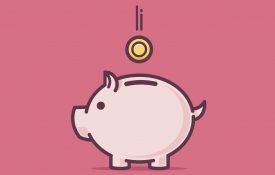-

Thinking of God Makes People Bigger Risk-Takers
Reminders of God can make people more likely to seek out and take risks, according to research published in Psychological Science, a journal of the Association for Psychological Science. The findings suggest that people are
-

Faith or Fear?
Scientists Study How the Threat of Divine Wrath Shapes Human Behavior
-
The Paradox of the Free-Market Liberal
The New York Times: IN American politics, personality is, supposedly, destiny: Having a conservative personality makes us conservative on economic and social policy, and vice versa for liberals. Think of the stereotypes: the free-spending, libertine
-
Shakespeare: One of the First and Greatest Psychologists
The Atlantic: Harvard linguist and cognitive scientist Steven Pinker groups social reformers into two broad categories. The moralist condemns one behavior and promotes another; the scientist, on the other hand, tries to understand why human
-

Attitudes About Who Brings Home the Bacon Lag Behind Economic Reality
A team of psychological scientists hypothesized that people’s deep-rooted beliefs about gender roles may be slower to change than the major behavioral shifts evidenced within society and the workforce.
-
Want To Solve The World’s Most Heated Disagreements? Bring Your Wallet
NPR: Conflict between Palestinians and Israelis or Republicans and Democrats appears intractable in part because of one fundamental bias: We misunderstand the other group’s motives. When Republicans attack Democrats, Democrats think they’re motivated by hate

